© MOD Crown
It was the great Roman poet, Horace, who wrote “Dulce et Decorum est pro patria mori”. It means that it is sweet and proper to die for one’s country, but the title was taken by the First World War poet Wilfred Owen for his own brilliant anti-war poem, describing the blood-soaked fields of Flanders and other First World War battlefields. Today, there are questions about Britain’s ability to defend itself and its friends at all. Perhaps a new version of the poem might carry the very opposite title: “non est dulce et decorum pro patria mori”. That’s especially the case when Britain seems to be underfunding its armed forces. After all, English King Edward III didn’t turn up to face an enemy army commanded by King Philip VI of France in 1346 and say: “Vivamus sagittis cursus ex” (We’ve run out of arrows) or “Satis gladios non attulimus” (We haven’t brought enough swords). Today, that seems to be becoming necessary, even if arrows and swords have been replaced by more up-to-date weapons. Well, a few anyway.
A plan to boost army numbers met with a very angry response from the Defence Secretary, Grant Shapps, however. He was said to be “furious” at a proposal by senior military commanders to relax the security clearance rules in order to meet the recruitment targets in terms of numbers. Shapps even told the Daily Telegraph newspaper that he was “ready to go to battle” over the issue. Well, it would make a change from him telling other people to go to battle. What’s more, it would be the sort of battle in which he wouldn’t face the risk of being shot or bombed. He also said he would block any moves to lower security clearance rules.
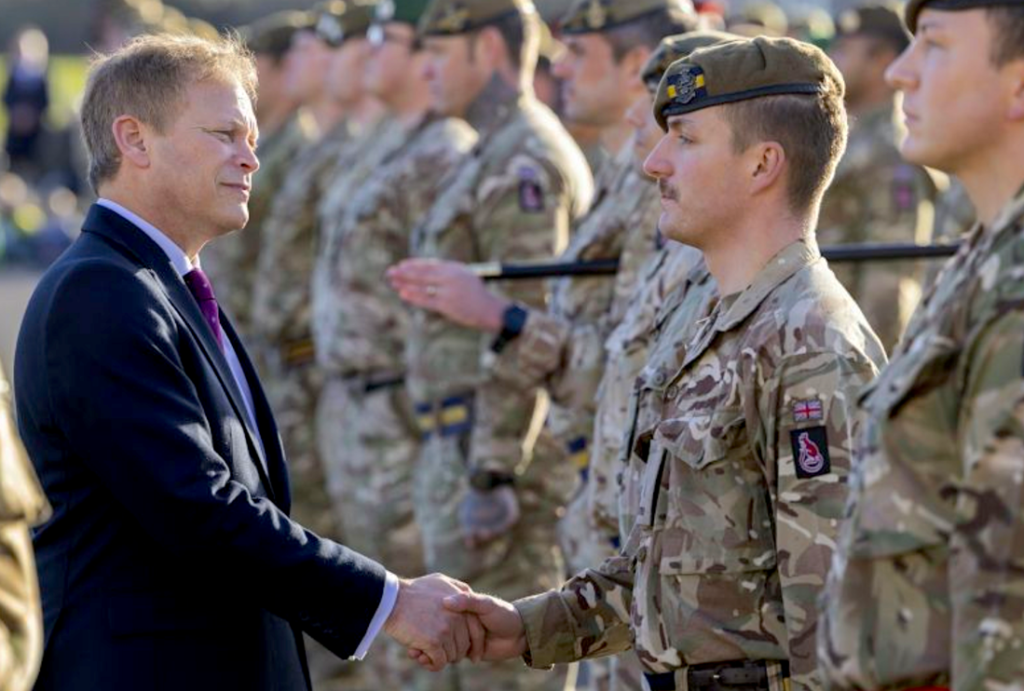
The idea behind the proposal is to increase diversity within the armed services. Existing security rules keep out people of other ethnicities, especially in the intelligence services and officer corps, because it would give them access to sensitive material. The newspaper’s People and Politics correspondent, Nick Martin, has pointed out that despite a woeful shortage of ethnic minorities within the armed services, the proposal is not about tackling a problem so much as sending a message to voters. Shapps has held a number of posts in the current Conservative government, including Minister of State for Housing and Local Government, Minister of State for International Development, Transport Secretary and even Home Secretary (but only for six days). He stood down from the International Development role over his handling of bullying allegations. He is a supporter of Boris Johnson.
To return to the present, the British Army was, historically, held in great respect, even by its rivals and enemies. It was a fearsome and well-armed body that won a lot of battles (it lost quite a few, too), often against the odds. The same was true of the Royal Navy, too, but that seems to be changing. Brutish people still celebrate Admiral Lord Horatio Nelson’s famous victory over Napoleon’s navy at the Battle of Trafalgar.
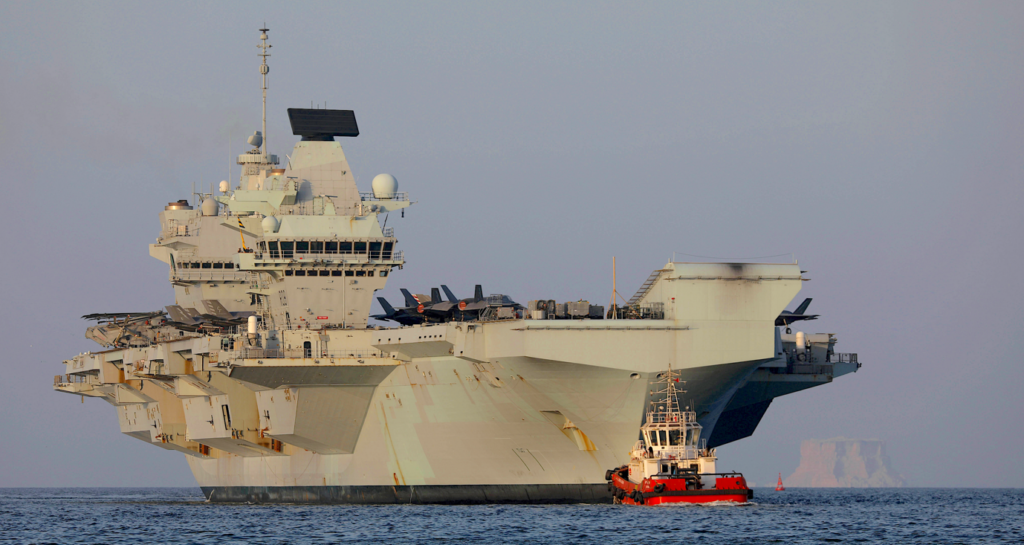
But things have changed. British people were proud to learn that the aircraft carrier HMS Queen Elizabeth, flagship of the British Royal Navy, was set to head the largest NATO exercise in Europe since the Cold War, involving more than 40 warships from 24 nations. It was with some disappointment and even anger, then, that they learned she couldn’t set sail after all because a problem had been spotted with a coupling in the vessel’s starboard propellor shaft. My grandfather, who was an engineering office in the Royal Navy back in the 1920s and 30s, would have been horrified at a British ship having to drop out of such a prestigious mission. Her place would be taken by Britain’s second largest aircraft carrier, HMS Prince of Wales; art least, in theory. However, before the vessel could set sail from Portsmouth, another propellor shaft problem was discovered and she had to be put into dry dock for repairs at the Scottish shipyard where she was built. It’s not the first time, either: a few years earlier, the ship had needed repairs to a propellor shaft that took nine months to complete after breaking down off the Isle of Wight and requiring a tow back to harbour. It seems a long way short of the ideals expressed by Sir Henry Newbolt in his famous patriotic (and rather jingoistic, if I’m honest) poem, Admirals All:
“Effingham, Grenville, Raleigh, Drake,
Here’s to the bold and free!
Benbow, Collingwood, Byron, Blake,
Hail to the Kings of the Sea!
Admirals all, for England’s sake,
Honour be yours and fame!
And honour, as long as waves shall break,
To Nelson’s peerless name!”
At this point, I suppose I should wave a British flag and shout out “Rule Britannia!” But I won’t. Because what happened to the Queen Elizabeth and the Prince of Wales (the ships, not the people) is not untypical in these straitened times. The British government is more concerned with economics, it seems, than with military standing. Or spending. According to the British government, defence spending with UK industry by the Ministry of Defence topped £25-billion in 2023 for the first time.
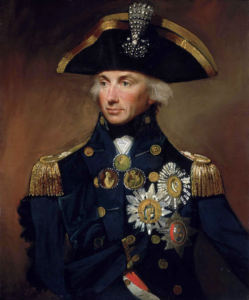
The government says that the 2022/23 statistics, published today, detail the money spent by the MOD with UK defence companies. The breadth of spending highlights the government’s commitment to continually improving the defence sector, while supporting the economy and creating hundreds of thousands of jobs across the country. The government specifically mentions the creation of new jobs in Wales and Northern Ireland and an average of £370 is being spent with the UK defence industry for every person resident in the UK. It sounds impressive, but if that’s all true, why do Britain’s flagship warships break down on exercise? The minister responsible, Defence Secretary Grant Shapps, has said that with threats increasing around the world “it’s crucial that investment in our Armed Forces matches that picture”. The media have warned the government of the need to increase defence spending and to make sure the money is spent wisely, but Schapps seems to be emulating Admiral Lord Nelson in Newbolt’s poem, when he is warned about the imminent approach of the Spanish fleet at Trafalgar: “He clapped his glass to his sightless eye and ‘I’m damned if I see it!’ he said.”
| SELF-DEFENCE?
Shapps, however, claims to be determined to support Britain’s defence industry. “As threats increase across the globe, it’s crucial that investment in our Armed Forces matches that picture,” he said. “That’s why we’re spending more than £50-billion (€58.77-billion) annually, helping, equip our military with cutting-edge capabilities, so they can continue to protect our freedoms around the clock. These statistics demonstrate,” he claimed, “how all parts of the UK are playing their part in that crucial work, delivering through our fantastic defence industry and boosting local prosperity.” Spending on defence is important for various reasons. Former US President (and possibly the next one) Donald Trump has warned at a rally that he would not come to the aid of a threatened NATO country that doesn’t spend enough on its defence. He has even said he would encourage Putin to attack countries that are not “paying their share”.
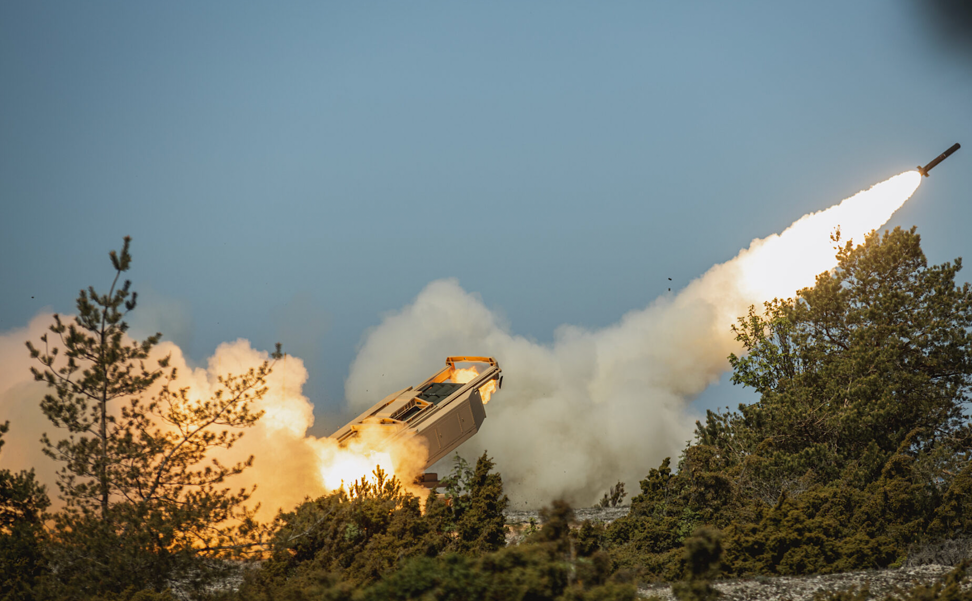
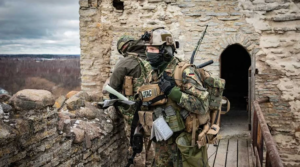
NATO members Latvia, Lithuania and Estonia plan to fortify their borders with Russia by building bunkers. Despite many of Western Europe’s member states not reaching their supposed 2-percent goals yet, there have been alarming statements reported from high-ranking officials in Denmark and Germany recently. Both the Danish defence minister Troels Lund Poulsen and Germany’s Inspector General of Armed Forces, Carsten Breuer have said they anticipate a war with Russia within the next few years. Let’s hope they’re being unduly pessimistic. It has spurred spending, though: two thirds of member states hope to reach that elusive 2% rate in 2024. It was back in 2014 that NATO members agreed a target of 2% of their GDP on defence spending. Only 11 out of 30 members have reached that goal at the moment of writing, but that’s about to change.
As things stand, Poland spends the next biggest proportion: 3.9%, but it has Russia as a neighbour, of course. The United States spends the next most, with 3.49% of GDP going on defence projects in 2023 and Greece comes after that with 3.01%. Next in the line are neighbours of Russia that still fear Russian ambitions, such as Slovenia (2.07%), Romania (2.44%), Estonia (2.73%), Latvia (2.27%), (Finland (2.45%), Lithuania (2.54%). I won’t give the full list because it can be misleading. But as you can see, it’s those countries with most to fear from the Kremlin that are keenest to spend money on keeping Putin out. Apparently, he still believes he’s popular and it’s just Washington that opposes him. Meanwhile, Germany’s largest arms manufacturer, Rheinmetall, has admitted that it is unable to match Ukraine’s demand for munitions, which is expected to reach more than two million artillery and tank shells a year. In terms of outright spending on defence, the UK is second only to the United States. The US spent $811-billion (€758-billion), while the much smaller UK managed to come up with $73- billion (€68-billion).
The UK has been criticising for not spending enough on defence, but it was cuts in previous defence budgets that largely funded the UK’s welfare state. What this means is that the ongoing conflict in Ukraine will have an unwanted effect on the National Health Service, possibly knocking one percentage point off global GDP for last year (2023), equivalent to some $760-billion (€709-billion). With rising inflation and soaring energy prices, it looks as if difficult times lie ahead. Nobody wants to see a return to the 1950s, when Britain spent almost 8% of its GDP on defence, that figure dropping to around 4% by 1980. The so-called “peace dividend” allowed Britain to spend more on the National Health Service.
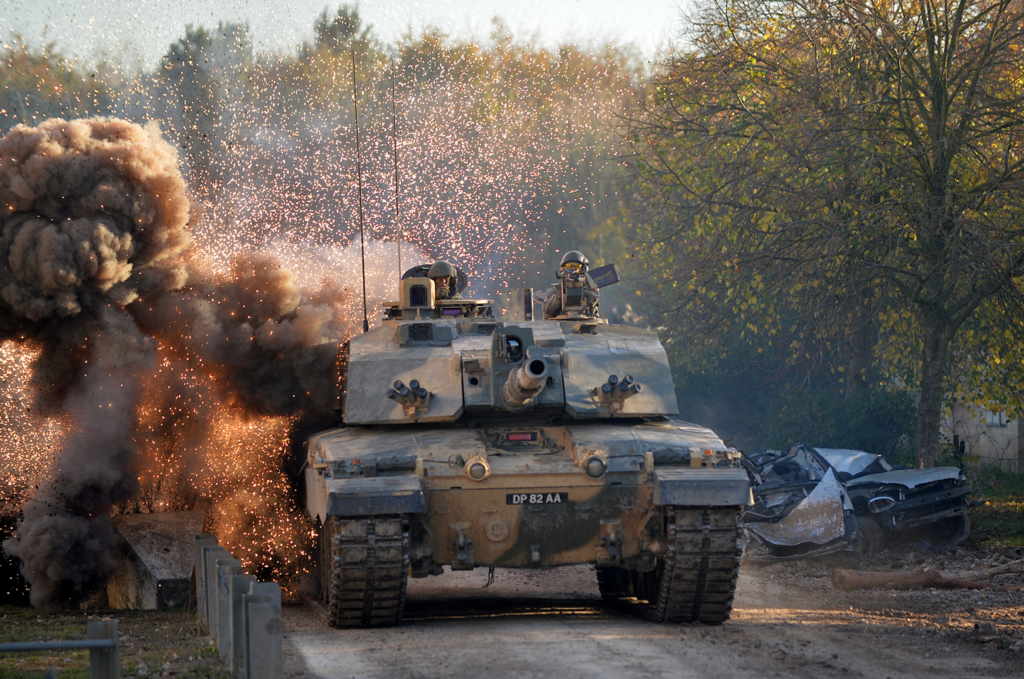
| WE’RE DOING OUR BEST
Britain is, in reality, one of only a small group of NATO countries to have consistently met that 2% pledge, but if Russia decides in favour of an all-out attack on NATO, things could change very quickly. Putin has already said that if Russia loses the war it launched in Ukraine he will bomb London. He blames the UK for the ongoing war because it has helped Ukraine, rather than simply letting Russia take the place by force. The Treasury is already struggling with inflation and may have to reduce or abandon its plan to step up defence spending, especially with many public sector workers looking for pay increases. So far, the amounts being requested have been fairly modest, but that could change if inflation leads to steep cost-of-living increases. Germany has been looking into increasing its defence expenditure, but if it does then Britain would be obliged to increase its own spending considerably to retain its position in the table of members’ payments for defence. But health workers have been demanding increases because they are, in the main, quite poorly paid, and the UK can’t afford to lose a lot of trainee doctors or nurses, just to save pennies. A new report, compiled on behalf of 14 trades unions representing more than a million health workers in England alone, makes clear that rebuilding the NHS workforce will be impossible without the fair, sustained wage rises central to recruiting and hanging on to staff. Prime Minister Rishi Sunak has a difficult balancing act ahead of him which he appears ill-equipped to carry out.

Perhaps the biggest problem facing the leaders of Britain’s armed services is, as senior officers believe, a shortage of recruits, hence the idea of lowering security requirements to attract more people from ethnic minorities. The United States faces similar problems with recruitment. Looking back to 2023, the aim was to recruit an extra 58,038 personnel for the US army. In fact only 43,634 were signed up. That may sound like quite a lot but it’s only 75% of the numbers thought to be required. Things went slightly (only slightly) better in the case of the Navy, where of the required 34,543 new recruits, 79.11% joined up. That’s 27,326 new sailors. Things went better still for the Marines, where recruitment figures actually exceeded the numbers sought: 24,910 against a target of 24,623. The Department of Defense described it as “the toughest recruitment year for the Military Services since the inception of the all-volunteer force”. Britain, meanwhile, has seen a 30% decline in the recruitment of regular forces, with only the Gurkha regiments offering a little sunshine. That suggests that accepting more recruits from ethnic minority groups could work, although Shapps seems unlikely to agree.
Overall, the strength of Britain’s armed services fell by 3.3% between October 2021 and 2022. Only 5,090 people joined up, which represents a decrease of 29.8%. The UK government revealed that as at 1 October, 2022, the total strength of UK forces stood at 192,300, a drop of 6,640 over the preceding 12 months. Further decreases were reported for the Royal Navy, Royal Marines and Royal Air Force. Recruitment showed a big decline, with only 11,982 people signing up in the year from October 2021 to the end of September 2022, a decrease of 5,090 over the previous 12 months. Another problem is that the British forces are finding it harder to retain the forces it has.
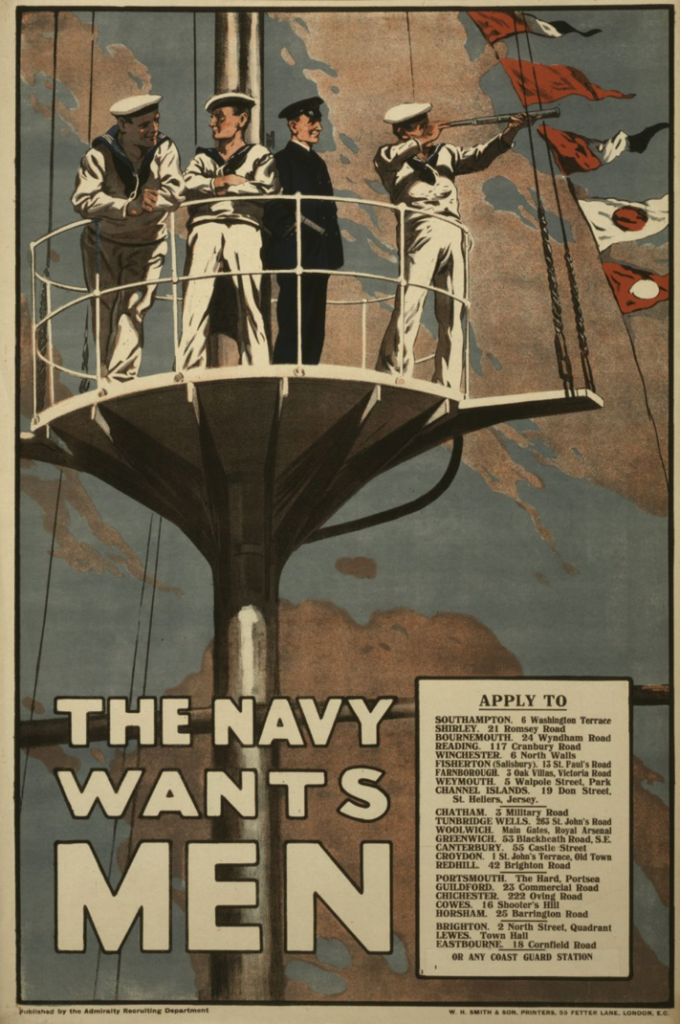
Over that same twelve-month period, 12,650 people left the regular forces, a substantial drop compared with the previous year. The commonest reason for quitting a service is what the UK government calls “voluntary outflow” – basically, a personal decision to return to civilian life. That apparently accounts for 59.4% of the decisions to leave the services before the end of their agreed engagement or commission period. Voluntary outflow was highest in the Royal Navy and Royal Marines (6%), followed by the British Army (5.7%), and the Royal Airforce (5.3%).
| UNIFORM DECLINE
Worryingly for the British government, the biggest drop has been in the reserve services. In 2020, it’s said that only 3,720 joined, a decrease of 1,980, or 34.8%. As that becomes more widely known, I suppose we can expect to hear laughter from the Kremlin. Part of the problem for UK recruitment has been military pay. It is well short of keeping pace with soaring inflation and the cost of living. Looking at the period 2021-2022, only service personnel earning below £24,000 (€28,143) received a pay rise, and then of a measly £250 (€293). All other salaries were frozen. According to the Office for National Statistics, the growth of military pay was well below the growth of average earnings. Relative to the Consumer Price Index, military salaries fell by 3.7% during 2021-2022, while average UK earnings grew by 2.6%. According to the Bank of England, Britain’s current inflation rate stands at 10.7%, w ell above the 2% target set by the government. The Bank of England also raised interest rates to 3.5%, the ninth consecutive increase in an attempt to curb inflation, which has slipped into an official recession. It’s no wonder that the UK is finding it hard to recruit soldiers, sailors, airmen, and marines these days. They can earn more in ordinary jobs.

Something clearly had to be done, and Last summer, the Armed Forces Recruiting Programme engaged with industry and issued a Contract Notice and Pre-Qualification Questionnaire (PQQ). The government has decided to put its faith in private recruitment companies to fill the growing gap. Following PQQ evaluation, the Programme has now selected four bidders to engage in Competitive Dialogue. They have chosen Capita Business Service Ltd, Randstad Sourceright LTD, Serco Ltd, and Shared Services Connected Ltd. They will choose the winning bidder once Competitive Dialogue is complete, with the contract being awarded in 2024 and the actual service beginning in April 2025. Britain’s current government, despite previous disasters, has a touching faith in private enterprise to solve its problems. In other words, if you throw enough money at a problem, it may go away without you having to think deeply about it or consider the alternatives. The contract itself is worth £1,000,000,000 (€1,171-million) to £1,750,000,000 (€2,050.78 million). It’s a good earner for somebody in a country that now seems to prize wealth about decency.
Meanwhile, the threat of war with Russia – as predicted by the Germans, the Danes, and others (including several well-placed Russian commentators) – continues to grow. It’s hardly surprising when Putin appoints to critical positions controversial people with provocative views. For instance, he has appointed Vladislav Surkov, a Kremlin idealogue, to look after matters in Ukraine. It’s an odd choice, to say the least, since Surkov says he doesn’t believe Ukraine exists, according to Mikhail Zygar in his brilliant book, War and Punishment.
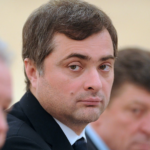
Surkov is actually on record as saying: “There is no Ukraine. There is only Ukrainianism,” and he doesn’t leave it there, going on to claim: “That is, a specific mental disorder. A pathological obsession with ethnography and blood-soaked local lore.” Well, judging by that we must assume that he knows about “mental disorder”. I wonder if he’d repeat that claim in a crowded Kyiv bar on a busy Saturday evening? Yes, I realise that the man is, to put it kindly, controversial in his views, but remember that Putin knowingly appointed him, despite his claims.
| NEW DAYS, NEW WEAPONS
Of course, these days the weaponry has changed, although the new kind are very expensive. A US-made GPS-guided artillery shell, for instance, costs around $100,000 (€93,383.94), so it’s not something to use lightly. Such clever weapons are not as common as you might think from the media reports, which is why they’re being replaced by what are called “first-person view” (FPV) drones. They have been developed from radio-controlled racing helicopters and they carry explosives that can be detonated by remote control. That way, the weapons only cost around $400 (roughly €374), which is why the Ukraine war front is bristling with the things. Quick to seize upon a passing trend that might give Ukraine the advantage, President Volodymyr Zelensky has even created a new branch of Ukraine’s armed services, the Unmanned Systems Force (USF) to use the things most effectively. After all, a GPS-guided shell would be many times as expensive.
| RUNNING LOW, NOT RUNNING AWAY
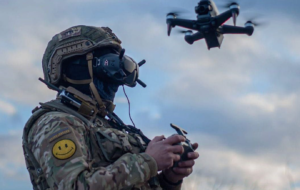
Ukraine is reportedly getting short of conventional matériel, mainly because its armed services fire up to 3,000 shells every day The experts who pilot the drones are not just there to deliver aerial bombs; the drones are also used for surveillance and reconnaissance. The other advantage of FPV attacks is that, unlike an artillery barrage, they don’t give enemy soldiers time to duck and seek shelter. One moment there not there, the next: BANG! By and large, they carry around 5 kilograms of high explosive, so it will be quite a big bang. Russia still possesses more firepower, of course, but its soldiers are just obeying orders, not fighting to save their country. Surkov may say (I’m not convinced that he actually believes) that Russian troops are just fighting a non-existent country and its determined “Ukrainiansim”, but the Ukrainian forces know very clearly what they are fighting against.
So far it would seem that FPVs are not 100% reliable, but that is changing. The pilots are getting better, for one thing, and they’re developing more effective tactics that can disable or destroy more Russian armour. Zelensky has said he wants to increase production of FPVs to around a million a year. Needless to say, Russia is producing and using FPVs of its own, too, while still blaming Washington for starting the war Russia actually began with its unprovoked attack and blaming the UK for prolonging it. It’s surprising that Putin keeps on with what is obviously fiction, but he seems to have long abandoned truth or honesty. Now Eric Schmidt, a former CEO of Google and a frequent visitor to Ukraine, is putting money into Ukraine’s drone production.

He plans to make them more effective, too, whilst simultaneously driving down production costs. Recently, Ukraine has used FPVs to sink the 113m-long Caesar Kunikov Ropucha-class landing ship, with its crew of 90. A Ukrainian press statement said “It was in Ukrainian territorial waters near Alupka at the time of the hit.” Kyiv has struggled overcome Russia’s dominance in the Black Sea and on this occasion, it used both drones and long-range missiles, including a Magura V5 drone, which is water-borne and looks like a speedboat. Reports say it can reach 42 knots (78 kilometres per hour) and carries a payload of 320 kilos. Its destruction is a major loss for Moscow. NATO allies have begun to ramp up their spending on defence, aware of Moscow’s aggressive intentions. Germany and Denmark could well be right. Perhaps Shapps should look into the possibility of buying more FPVs, since they wouldn’t require visas or “look foreign”, unlike recruits from ethnic minorities.
According to a report on Al Jazeera, Russia has lately imposed sanctions on 18 British citizens including officials, academics, and Russia experts for what it describes as an attempt to “demonise Russia” and “fan the war in Ukraine”. They would seem to be relatively peace-loving, compared with Surkov, while Putin can hardly add Shapps to that list of war-mongers, although he undoubtedly will. The Russian Foreign Affairs ministry has accused British officials as being “Russophobically charged” and says they have been trying to discredit Russia’s constitutional system “and socio-political processes in our country”. The easy way to stop that would be to withdraw from Ukraine and to stop trying to take it over, perhaps even try real democracy, but Putin seemingly doesn’t favour that option. It’s very hard to see how he thinks it’s all London’s or Washington’s fault, but Putin and logic have long been strangers. I mean, you can’t argue that you are engaged in a justifiable war against a country you also say doesn’t exist. Perhaps one day we’ll look back on the whole affair and laugh, at least once we’ve finished mourning the dead.

